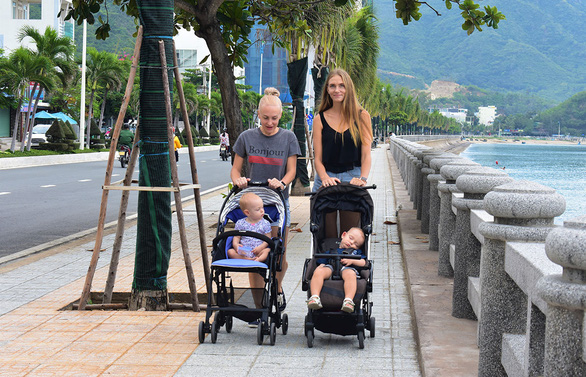While authorities in Vietnam's Quang Nam Province, home to travelers’ favorite spot of Hoi An Ancient Town, is scrambling to prepare a plan for the return of international visitors, other tourism hubs of Vietnamese say they will set their effort in motion as soon as their proposal on reopening to foreign tourists gets approved by the national government.
Earlier, leaders of Ho Chi Minh City and Kien Giang Province said they were setting sights on reopening to international travelers after a long break to prioritize coronavirus curbs.
Vietnam has now kept the coronavirus at bay as the country has not recorded any community transmission for weeks.
Opening with vigilance
Nguyen Thi Anh Hoa, deputy director of the Ho Chi Minh City Department of Tourism, said the city is still putting the goal of epidemic containment first.
Although the border is still closed to tourists, tourism agencies and lodging facilities have been serving international visitors who came to Vietnam as experts in the past year, which provided realistic experience on COVID-19 prevention guidelines to these firms.
“Utilizing the practical knowledge for the top tourism firms, we will be able to guide tourists through different locations in Ho Chi Minh City and its environs safely, not just staying in one place for quarantine,” Hoa said.
Nguyen Luu Trung, deputy chairman of the Kien Giang People’s Committee, said the province has submitted its reopening proposal, which would allow foreign tourists to stay in secluded areas in the province, to the prime minister for consideration.
Earlier, a delegation of the Vietnamese Embassy in Russia has visited Kien Giang to discuss the possibility of reopening the province’s tourism hub of Phu Quoc Island to Russian visitors.
Central-level ministries and designated agencies will provide detailed guidance on secluding Phu Quoc Island, which will involve the entrance protocol for Russian visitors, a list of airlines permitted to land at the island, as well as other local preparations, once Kien Giang’s proposal is approved, according to Trung.
“To ensure safety, all Phu Quoc islanders will be inoculated against COVID-19 in accordance with the Ministry of Health’s standards before Russian visitors are allowed in,” Trung said.
“In the best scenario, the earliest we can reopen to Russian travelers is September or October."
Only one five-star hotel in the north of Phu Quoc Island, which is considered the most popular place for Russian tourists having come to the area in the past years, has signed up for the trial reopening so far, said Bui Quoc Thai, deputy head of the Kien Giang Department of Tourism.
“We are looking forward to welcoming back foreign visitors,” Thai stated.
“Tourists will be quarantined upon their arrival at the local airport, as they will be sent immediately to their lodging and kept under strict COVID-19 prevention regulations.”
Welcoming ‘vaccine passports’
Nguyen Trong Dien, director of the Department of Health in northern coastal Quang Ninh Province, pointed out that COVID-19 jabs may take up to one month to take effect, while the vaccinated can still contract the pathogen.
For that reason, those who just got their dosage will still be directed to quarantine to minimize the threat of transmission.
Echoing Dien’s point, Le Khac Nam, deputy chairman of northern Hai Phong City, affirmed the locale’s strict adherence to COVID-19 prevention guidelines, as an outbreak will prove lethal to the local economy.
“Hai Phong has secured the top spot on Vietnam’ leader board of economic growth in the past two years thanks to multiple factors that keep the city safe against COVID-19," Nam said.
“As we are not fully dependent on the tourism industry, COVID-19 prevention will remain our top priority.”
Meanwhile, other tourism-oriented provinces are looking forward to the acceptance of ‘vaccine passports’ in Vietnam.
As Le Van Son, deputy chairman of the Tourism Association of Khanh Hoa Province, sees it, such ‘vaccine passports’ will open up a new opportunity for local tourism after one year devoid of foreign tourists.
In the meantime, Son suggested a reopening to tourists from countries that have successfully contained coronavirus spread and have reached herd immunity.
Foreign visitors coming to Vietnam must present proof of their vaccination in the form of certificates or scannable QR codes.
They will be allowed to stay in designated resorts as long as they adhere to local regulations and limit their exposure to the local community.
Like us on Facebook or follow us on Twitter to get the latest news about Vietnam!



















































